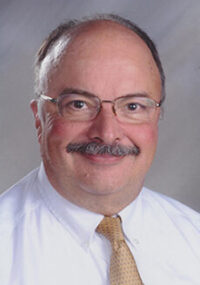By practicing the faith, we can make light of Christ shine, reveal God’s kingdom

Living the Word l Tim Irwin
Sixteenth Sunday in Ordinary Time l July 23
Wisdom 12:13,16-19; Psalm 86:5-6,9-10,15-16; Romans 8:26-27; Matthew 13:24-43
St. Matthew presents five sermons spread throughout his Gospel, the most well-known being the Sermon on the Mount. Beginning last week and concluding next week, the Gospel readings feature the third great sermon — the Discourse in Parables. A parable is a story using something familiar to the original audience to explain something unfamiliar to them.
Parable is a transliteration of the Greek parabole meaning to place beside. The goal is to invite comparison so that we take what we know and we use it to better understand what we don’t know. The parable is expressed in cryptic language that both conceals and reveals the mystery but makes no attempt to resolve it. The way Jesus uses parables instructs us in the fine art of evangelization.
“The disciples approached him and said, ‘Why do you speak to them in parables?’ He said to them in reply, ‘Because knowledge of the mysteries of the kingdom of heaven has been granted to you, but to them it has not been granted. To anyone who has, more will be given and he will grow rich; from anyone who has not, even what he has will be taken away” (Matthew 13:10-12).
CONCEALING, REVEALING
One purpose of the parables was to conceal. Some people came to Jesus because they were curiosity seekers. Others came to Jesus in order to have their own agendas realized. In a world without reliable health care, a person who could heal ignited the expectations of the desperately ill and infirmed. Miracles were not the goal of Jesus’s ministry, but served to validate his proclamation of the Kingdom. Those miraculous effects dissipated over time. Lazarus died a second time.
The sacramental life can charge up our spiritual batteries giving our communities what we need to share the light of Christ. In so doing, we respond and repeat Jesus’s invitation.
Another purpose of a parable was to reveal. The truth seekers are the disciples. It is the fact that they care enough to ask that they are disposed to become disciples. Once the disciple understood the basic meaning of the parable then the mystery of the Kingdom of God could be understood as never before. From this understanding comes implicit guidance into the way Christians are called to live. These disciples became the bulbs through which the light of Christ first shined in the world and so revealed in some measure the Kingdom of God.
LIGHT IN A DARK WORLD
The parables illustrate the paradigm for how we ought to respond to Christ. The proclamation invites people to join in the Eucharistic Covenant that is the Church. When we accept the invitation and let it echo throughout our lives, we become the children of the kingdom who leaven society. We shine like bulbs on a Christmas tree making the light of Christ accessible to a seemingly ever-darker world.
Practicing the Holy Faith reveals the Kingdom of God. It pierces the vale of tears resulting from vices perpetuated by self-centeredness. To be Jesus-centered is to be other-centered. The sacramental life can charge up our spiritual batteries giving our communities what we need to share the light of Christ. In so doing, we respond and repeat Jesus’s invitation. We help others to see that the Kingdom of God really is at hand.
—
TIM IRWIN teaches theology and philosophy at Notre Dame High School in Peoria. He is a member of Blessed Sacrament Parish in Morton.





